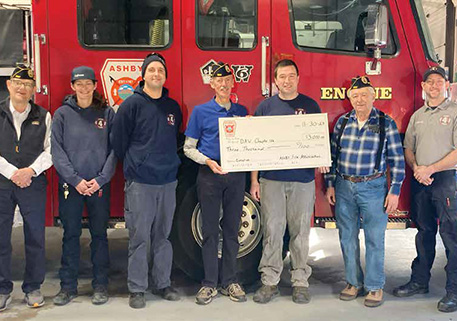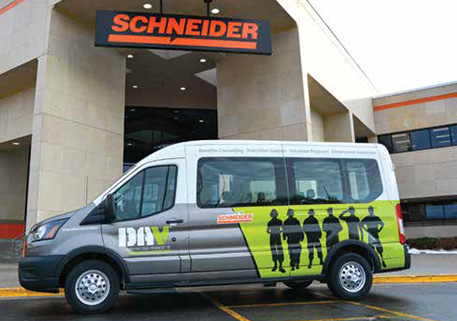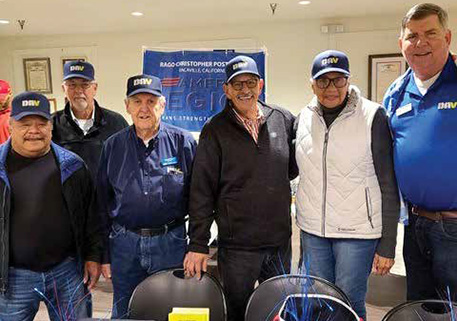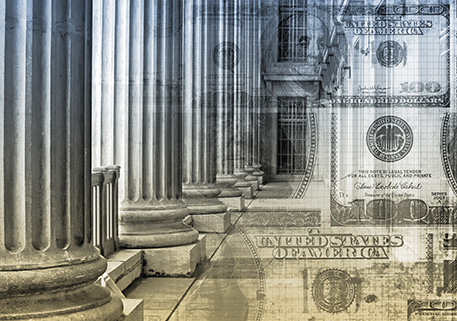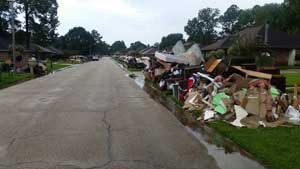
Zelina Palmer was looking forward to her first day of college at Southern University in Baton Rouge, La. The Army veteran, who served from 2006 to 2015 as a mechanic and human resource specialist, wanted to continue a life of service by pursuing a degree in social work.
Then devastating floods ravaged her apartment and shattered her plans. Palmer lost everything.
“My whole apartment was submerged in water. I tried to salvage some things but was told I couldn’t due to contamination,” she said.
Initially, Palmer stayed in a hotel as she planned how to rebuild her life, but she eventually found herself staying in her car as the lodging costs continued to mount and her apartment remained uninhabitable.
Due to the vast number of people impacted by the Louisiana floods, financial support from government entities was delayed. The clock continued to tick; Palmer was running out of time.
Through its Disaster Relief Program, DAV is able to provide financial support to veterans in their time of need. National Service Officers travel throughout the nation to areas impacted by natural disasters to support their brothers and sisters in arms.
New Orleans NSO Assistant Supervisor Belinda Hill provided Palmer emergency funding on behalf of DAV to offer interim assistance as the young veteran struggles to get back on her feet.
“Everyone is waiting for support—there is a long waiting list for everything. And on top of school, I start my internship next Monday,” said Palmer. “It means everything to get help when you literally see all your belongings submerged in water.”
Hill, who served 30 years in the Army, has supported three different disaster relief efforts in Louisiana since she began working for DAV in 2011.
“I started working at DAV because I wanted to help fellow veterans. It feels good to provide disaster relief assistance because these are veterans in great need,” said Hill. “I’m a veteran, and that’s what we do. We have each other’s backs.”
Hill and her team traveled to Baton Rouge to provide financial assistance and emergency-relief kits— backpacks stuffed with blankets and hygiene items—to impacted veterans. The need was overwhelming.
The Disaster Relief Program fund was dwindling due to the large number of efforts supported in 2016, but there were still many Louisiana veterans in need. DAV National Adjutant Marc Burgess put out a call asking for support for the program, which is funded completely through donations.
DAV supporters answered, donating more than $125,000, which allowed Hill and her team to return to Baton Rouge four times. They were able to provide more than $72,900 worth of vouchers, as well as 250 emergency-relief kits, to veterans.
DAV has provided more than 700 grants totaling $270,800 across the nation in 2016. Disabled veterans in Louisiana alone have received $173,000 in vouchers since January.
Among those helped were Army veteran Van Johnson and his wife, who had to be rescued from their home by boat. The Vietnam veteran lost everything.
“DAV’s support means so much,” said Johnson. “A little bit can make a whole lot of difference when you don’t have anything,”
This message was echoed by many of the veterans DAV was able to support.
“I’m completely starting over,” said Erma Williams, an Air Force veteran. “This support is everything. To have someone come and give assistance, it makes you feel like someone cares. To have someone say, ‘It’s OK, I’ve got your back.’ To me, this means you don’t have to suffer by yourself.”
Army veterans Wishedell Ridley, Felix Hatch and Cartier Brown grew up in the same neighborhood and went to boot camp together at Fort Polk in 1969. All three also received aid from DAV when their homes flooded.
“This support makes me feel appreciated for what I did for my country,” said Ridley, a DAV life member.
DAV National Commander David Riley also traveled to Baton Rouge to provide his support and assistance on the ground during one of DAV’s return trips.
“Being able to show that DAV is here for moral support, and that we will be here after the disaster, is important,” said Riley. “It’s so good to see the smiles on faces when we are able to help so these veterans can get the essentials they need right now.
“Going to a location ravaged by a natural disaster to support our brothers and sisters in greatest need certainly isn’t easy, but DAV will make every attempt to reach out and get them help. DAV means veterans helping veterans, and providing some interim relief is a small way we can say thank you for your service and we’re here for you.”

